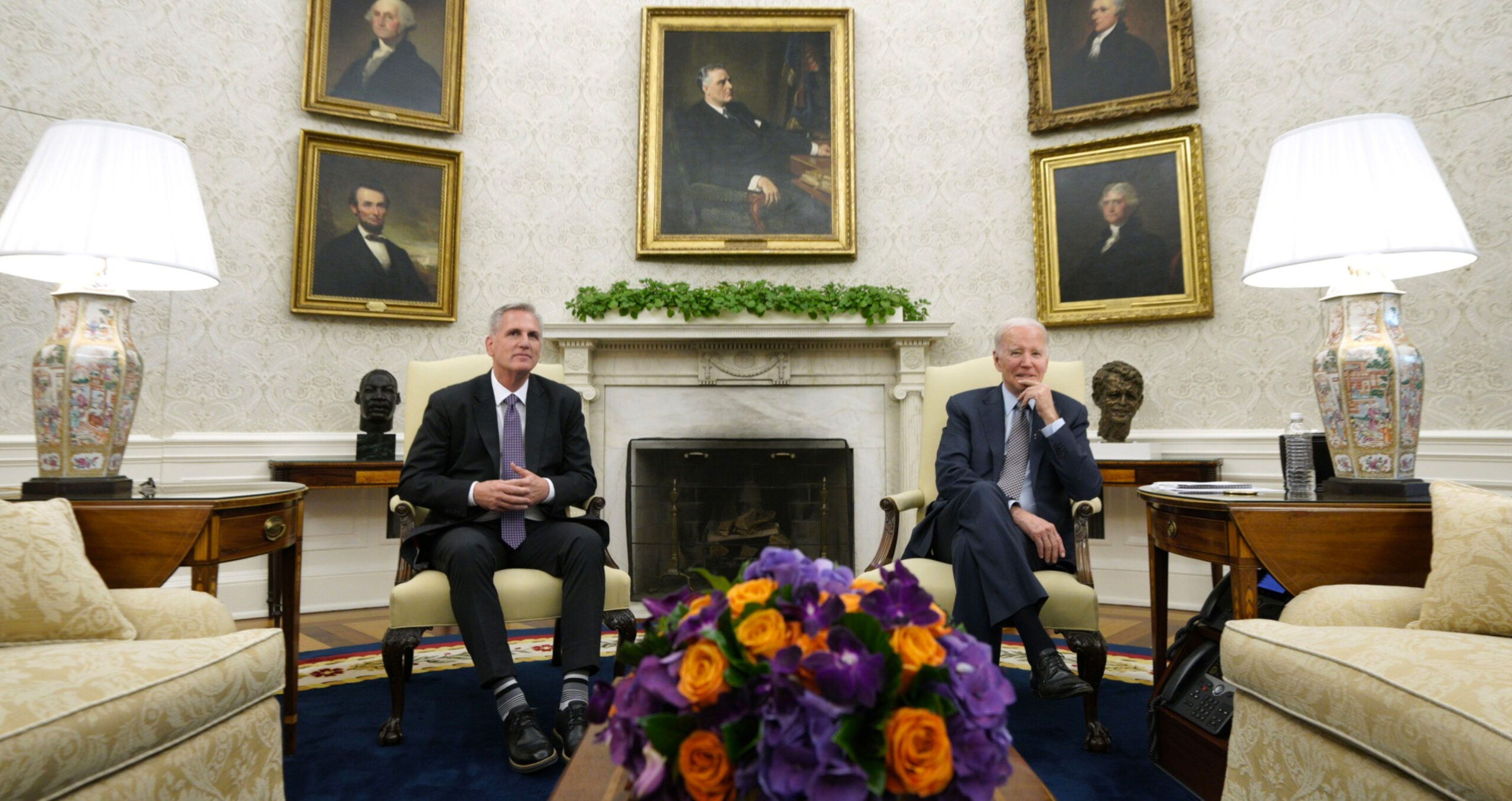

As US president Joe Biden’s administration tussles to get agreement from the Republicans over raising the debt ceiling, some fear the price could be a trimming back of his climate ambitions.
The US administration is still hoping to strike a deal with its Republican opposition on raising the national debt ceiling ahead of a deadline that could come as soon as June 1 or risk the country defaulting on its debt. Such an event is unprecedented, and could spell chaos for financial markets.
Recent expenditure has been hefty, with the US government spending $3.61tn between October 2022 and April 2023, representing an increase of $266bn from the same period last year. Over the 2022 fiscal year, the government spent $6.27tn, or a quarter of the nation’s gross domestic product – up from a fifth of GDP in 2015. The national deficit now sits at $925bn, having rocketed from $360bn between October 2021 and April 2022.
The financing of measures to combat climate change is a key component of US president Joe Biden’s fiscal agenda. At its core is the Inflation Reduction Act, which has committed $369bn in investment towards energy security and climate change programmes.
The IRA, which aims to cut carbon emissions by around 40 per cent by 2030, includes tax credits for solar panel manufacturing, grants for industrial emissions reduction and incentives for clean fuels and vehicles.
Negotiations continue between the White House and Republican leaders, with Biden and Republican House Speaker Kevin McCarthy meeting on Monday. A deal did not emerge from the meeting, and some believe that the government’s climate agenda may be up for discussion.
However, Alexandra Russo, Candriam head of ESG client portfolio management for the US and UK, says: “The Inflation Reduction Act and climate initiatives are seen as potentially being on the chopping block, but I believe that Biden will do whatever he can to keep those initiatives in place.”
Bargaining on IRA cuts
US policymakers remain some distance away from a deal, with Biden’s focus on climate change clashing with the elements of the Republican party opposed to ESG measures. In April, McCarthy pitched a package that would increase the debt ceiling by $1.5tn, in return for cuts that would include elements of the IRA designed to combat climate change, according to Associated Press.
The White House said that on May 19, McCarthy’s negotiating team had “put on the table an offer that was a big step back and contained a set of extreme partisan demands that could never pass both Houses of Congress”.
Some observers doubted the president would give up on his strategy. Todd Ahlsten, chief investment officer at asset manager Parnassus Investments, says: “I would think Biden would be pretty firm on holding on to those clean energy, long-term decarbonising investments.”
Free market principles
Meanwhile John Morton, previously climate adviser to former US president Barack Obama, remains positive. “We’ve been through this process many times before and I continue to hope that cooler heads will prevail and that we’ll have a solution here,” he tells Sustainable Views.
“The reasons why financial institutions and corporates have been investing the way they have been in environmental, social and governance, and in climate and in sustainability more broadly, is because of well-reasoned, well-thought-through strategies and fiduciary responsibilities that these institutions take quite seriously,” says Morton, who is now global head of advisory services at consultancy Pollination.
“It would be a real perversion of free market principles if there’s any attempt to prevent management teams and stewards of financial pools of capital from doing what they feel is in the best interests of their shareholders in the long term,” he adds.
But the private sector’s ability to invest sustainably has also been impacted by the rising cost of borrowing. In early May, the US Federal Reserve raised its main interest rate by 0.25 per cent, to a range of 5 to 5.25 per cent.
Rates are at their highest level in 16 years, squeezing investors’ ability to back ESG initiatives. “You have the Fed rates going up dramatically, and that’s making funding these in the private market much harder,” Ahlsten says.
“When we had [a] zero interest rate policy, it was pretty easy to fund a lot of clean, green, decarbonising renewable projects. The private ability to invest in a lot of leading-edge green technologies is more challenged,” he adds.
Similar Articles

In Brief: EU directs funds to sustainable fisheries; ethical tax standards released

Opponents of mandatory Scope 3 reporting are ‘confusing the symptom for the cause’


